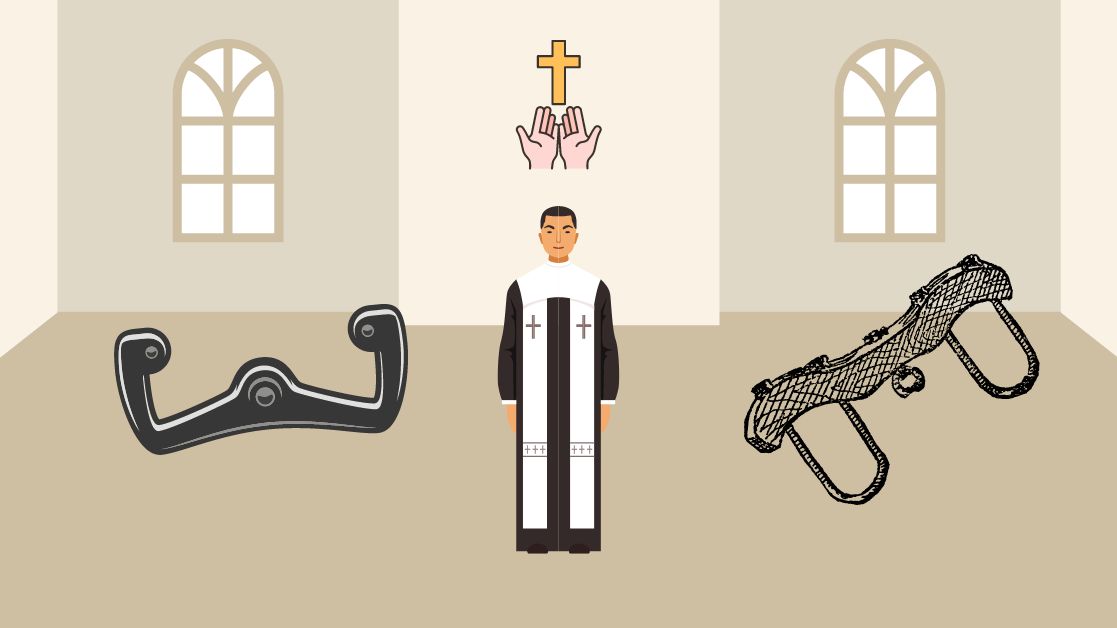The concept of a yoke holds significant meaning in both the Old and New Testaments, representing various aspects of faith, servitude, and obedience.
In this article, we will delve into what the yoke means in the Bible and explore its spiritual significance.
What is the Literal Meaning of Yoke?
A yoke is a wooden beam placed across the necks of two animals, such as oxen, to allow them to pull a plow or cart. This practical device was crucial in ancient agricultural societies, symbolizing partnership and shared labor.
Biblical Meaning of Yoke
According to Smith’s Bible Dictionary, the term “yoke” is a well-recognized agricultural tool frequently used metaphorically to denote subjection. For instance, in passages like 1 Kings 12:4 and 1 Kings 9-11, it is used to symbolize submission. Therefore, when the Bible speaks of an “iron yoke,” it refers to an incredibly oppressive form of bondage, as seen in Jeremiah 28:48 and Jeremiah 28:13.
Easton’s Bible Dictionary defines a yoke as a device fitted around the necks of oxen to attach the traces that enabled them to pull plows and other heavy loads. This yoke typically took the form of a curved piece of wood known as an ‘ol. Symbolically, it also represented servitude and the bearing of the weight of a task or a mission.
What Does Yoke Mean as a Metaphor?
In the Bible, the yoke is often used as a metaphor for the union of marriage. 2 Corinthians 6:14 emphasizes the importance of believers partnering with those who share their faith to maintain harmony and spiritual unity.
The yoke is also used metaphorically to represent oppression and bondage. In the Old Testament, the Israelites were subjected to the yoke of slavery in Egypt, symbolizing the heavy burden of their servitude.
Similarly, in Galatians 5:1, the Apostle Paul encourages believers to stand firm in their freedom in Christ and not be burdened again by the yoke of slavery, referring to the legalistic requirements of the Mosaic Law.
One of the most famous passages related to the yoke is found in Matthew 11:28-30. In this context, the yoke represents submission to Christ and His teachings, contrasting the heavy burdens imposed by legalism and sin.
In the New Testament, becoming a disciple of Christ is often likened to taking up His yoke. It implies a willingness to submit to His authority, follow His teachings, and share His mission. Jesus calls His followers to take on His yoke and learn from Him, emphasizing the importance of humility and obedience.
The yoke is occasionally used metaphorically to depict the burden of a duty or responsibility. For instance, King Rehoboam attempted to establish his authority by warning his subjects of “a burdensome yoke” (1 Kings 12:11). The act of breaking a yoke was often symbolic of liberation from oppressors, as seen in Isaiah 10:27, or the commencement of a new chapter in one’s life, as when Elisha abandoned his farming life to follow Elijah (1 Kings 19:19–21).
Bottom Line
The “yoke” in the Bible has different meanings. For example, in marriage or faith, being with people who share your beliefs is essential. The Bible also talks about how people can be forced to work hard, like when the Israelites were enslaved in Egypt.
In the New Testament, Jesus talks about His “easy yoke,” meaning that following His teachings is not as tough as following strict rules. He invites people to learn from Him and find rest for their souls.
The Bible also uses the idea of a yoke to show how we carry responsibilities or make significant changes in our lives. Breaking free from difficult situations can be like taking off a heavy yoke and starting fresh.
In understanding these different meanings of the yoke in the Bible, we can realize essential lessons about faith, freedom, and how to live our lives. As a community pastor, I encourage people to think about the challenges we face and how following the teachings of Jesus can give us rest and purpose.




